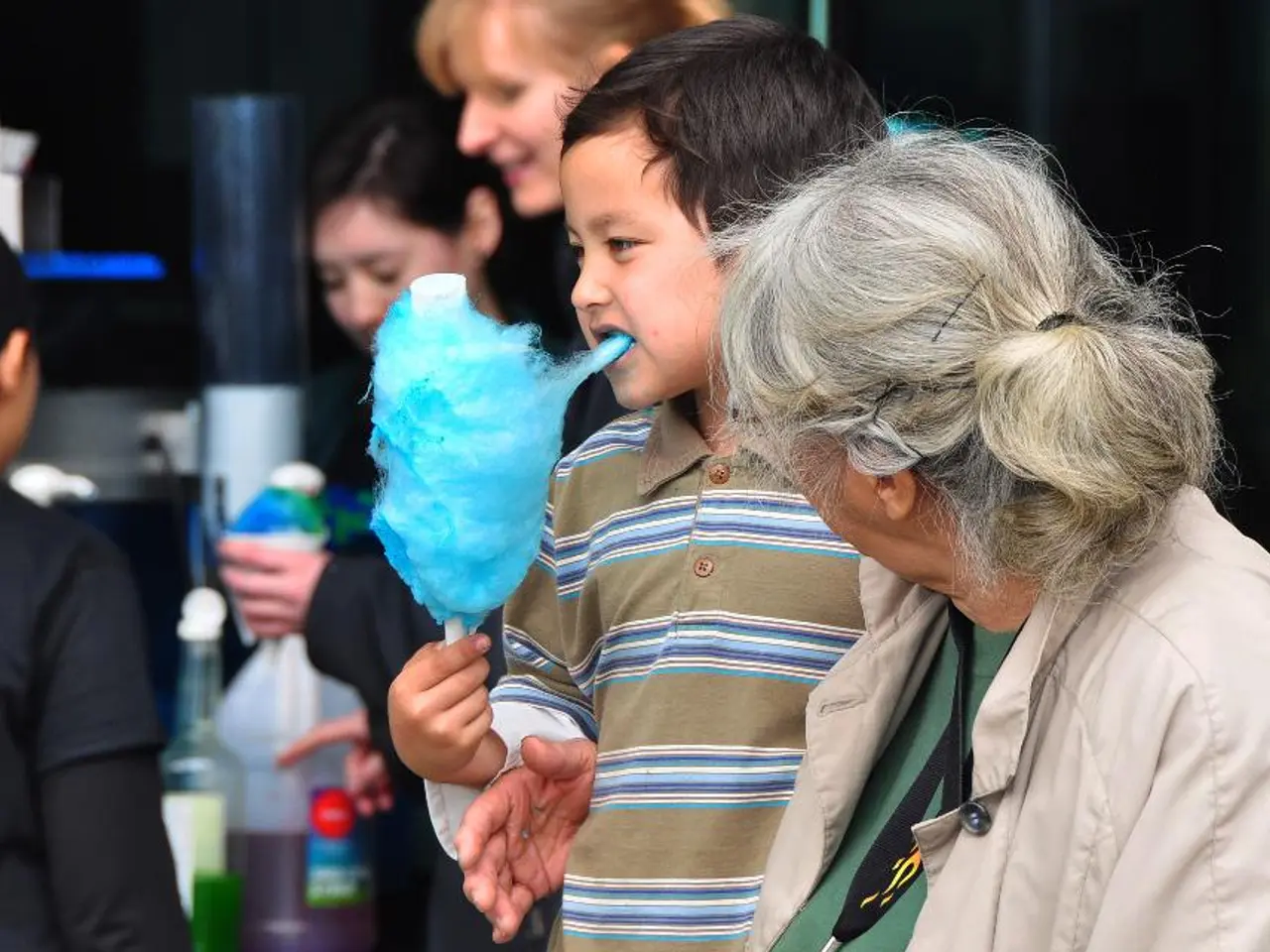Skyrocketing malnutrition rates in Gaza confirmed by United Nations
In the heart of the Middle East, the Gaza Strip is facing a critical humanitarian crisis, with malnutrition rates among children surging dramatically since March 2025. This alarming trend is attributed to ongoing conflict, blockade, and deliberate starvation strategies, resulting in elevated hospitalisation rates and child mortality.
The Israeli blockade, coupled with restrictions on food and essential supplies, is widely reported as a primary cause of the crisis. The blockade has led to widespread starvation conditions, with evidence suggesting the use of starvation as a weapon in the conflict. Continuous bombardment and forced displacement further exacerbate the situation, preventing many malnourished children from accessing hospitals or treatment.
The 21-month-long conflict has had a devastating impact on Gaza's health sector and disrupted supply chains, making it difficult to provide adequate nutrition and medical care to children. Since January 2025, over 18,700 children have been hospitalised for acute malnutrition, with many more unable to receive care due to access challenges.
Clinics report a staggering increase in malnutrition cases among children as young as 6 months to 5 years, with up to 15% of children screened in some hospitals showing signs of severe or moderate malnutrition. The crisis is further complicated by the fact that more than 700 pregnant and breastfeeding women are recorded with malnutrition, jeopardising children's nutrition and survival prospects.
Alarming child death tolls linked to malnutrition and starvation have been reported, with nearly 900 deaths among desperate Gazans recently documented, including many children trying to access food.
In response to the crisis, some hospitals, like the Patient Friend Benevolent Society hospital in Gaza City, have opened dedicated departments to manage severe malnutrition cases in young children. Organisations such as Médecins Sans Frontières (MSF) run clinics enrolling hundreds of severely malnourished children and women in therapeutic feeding programs.
UNRWA, the main U.N. agency caring for Palestinians in Gaza, employs over 1,000 health workers to provide nutritional services to children across Gaza. Despite severe limitations and very restricted supplies, UNRWA reports that about 10% of children screened are malnourished while trying to deliver care amidst the crisis.
Aid organisations and UN officials emphasise the urgent need for a ceasefire and allowing large-scale food and fuel deliveries to Gaza to end the starvation and prevent further deaths. The U.N. states that hundreds of trucks a day are needed to sustain Gaza's population.
The blockade, however, remains in place, with Israel allowing an average of 69 trucks a day carrying supplies since easing the blockade in May, according to COGAT. Hunger has been rising among Gaza's more than 2 million Palestinians since Israel broke a ceasefire in March.
In an effort to alleviate the crisis, the Gaza Humanitarian Foundation (GHF) has distributed food boxes with the equivalent of over 70 million meals since late May at its centers in Rafah and central Gaza. However, the U.N. cites Israeli military restrictions and the breakdown in law and order as reasons for struggling to pick up and distribute aid.
As the crisis continues, experts have warned of famine, with UNICEF reporting a marked increase in malnutrition cases, with 5,870 cases documented in June, more than double the around 2,000 cases in February. The situation remains critical, and urgent political solutions are needed to end the crisis and ensure the survival and wellbeing of Gaza's children.
- The ongoing conflict and blockade in Gaza, leading to food shortages and malnutrition, have also impacted the field of science and health-and-wellness, as scientists and medical professionals are hurdling significant challenges in providing proper nutrition to children.
- In light of the escalating crisis in Gaza, where malnutrition rates among children are alarmingly high, organizations like Médecins Sans Frontières (MSF) are actively participating in nutritional interventions, enrolling severely malnourished children and women in therapeutic feeding programs.




